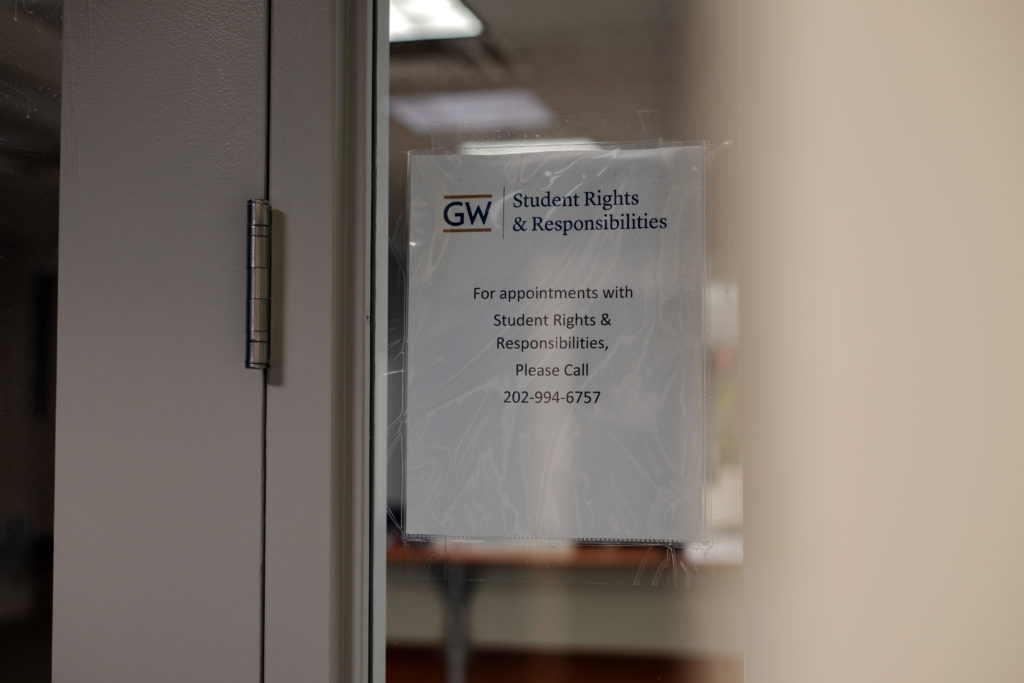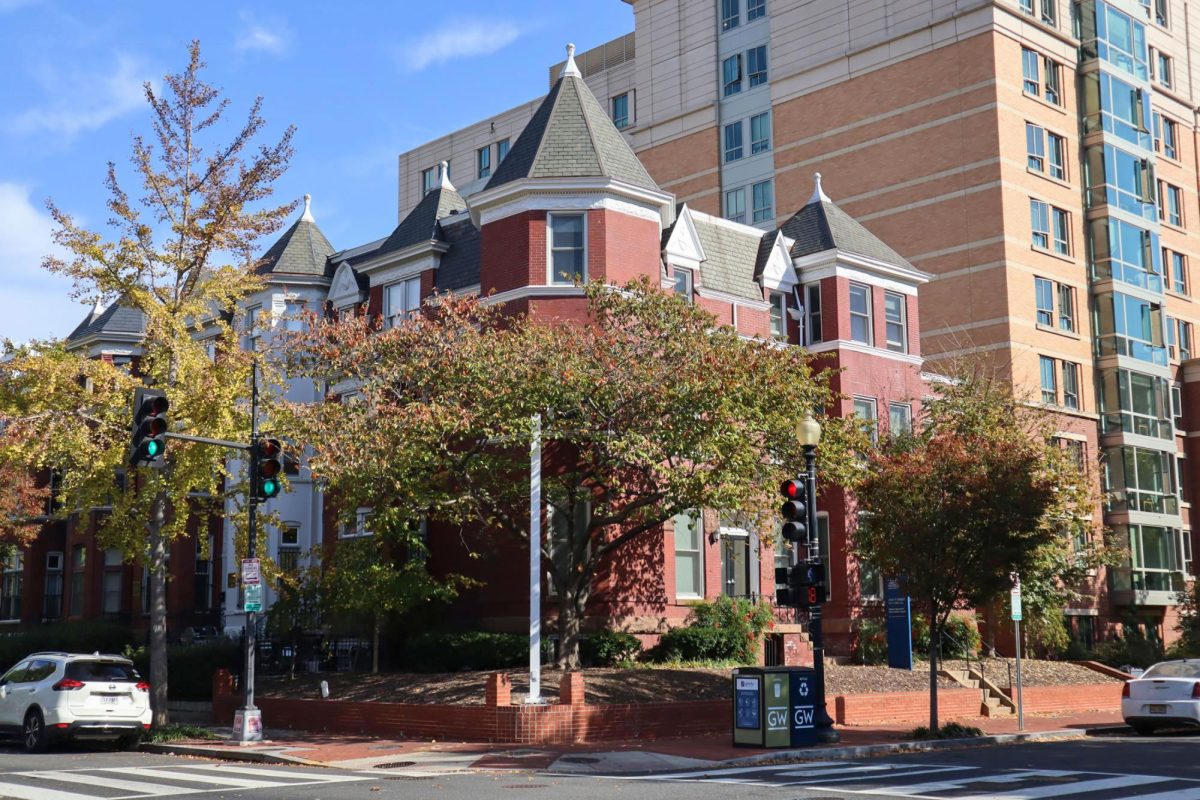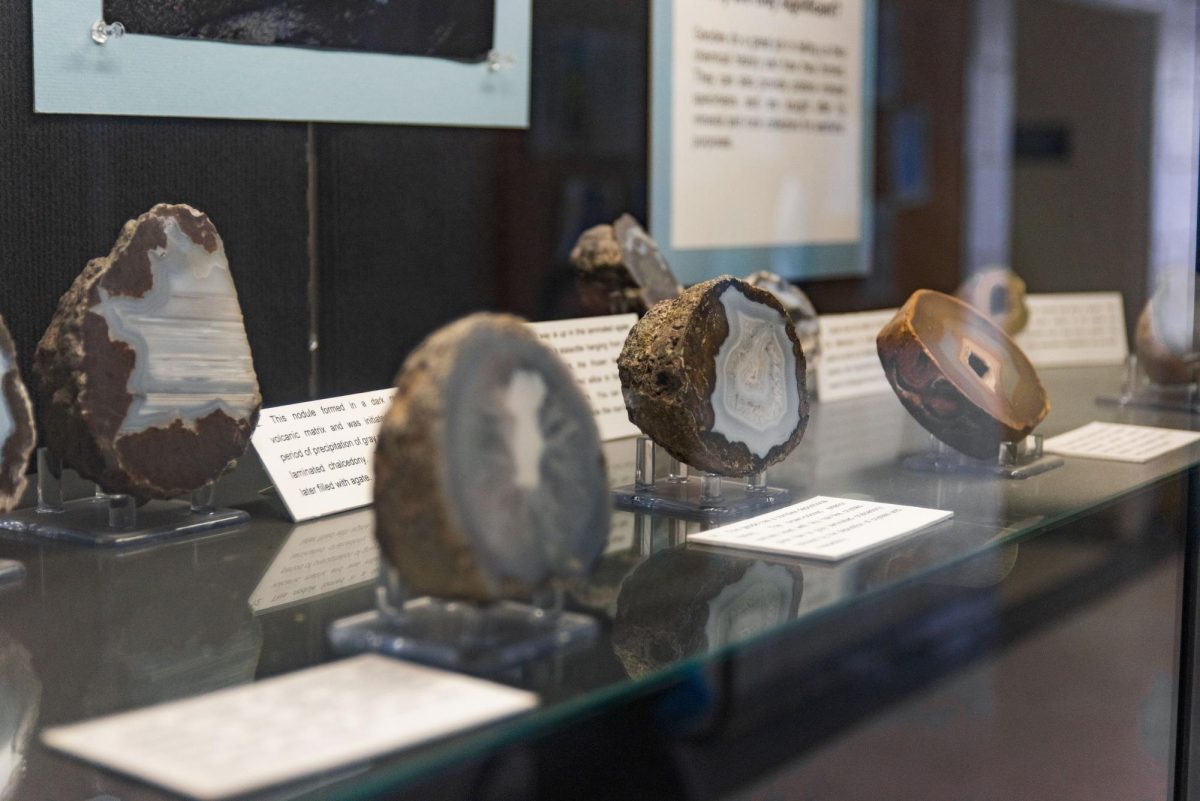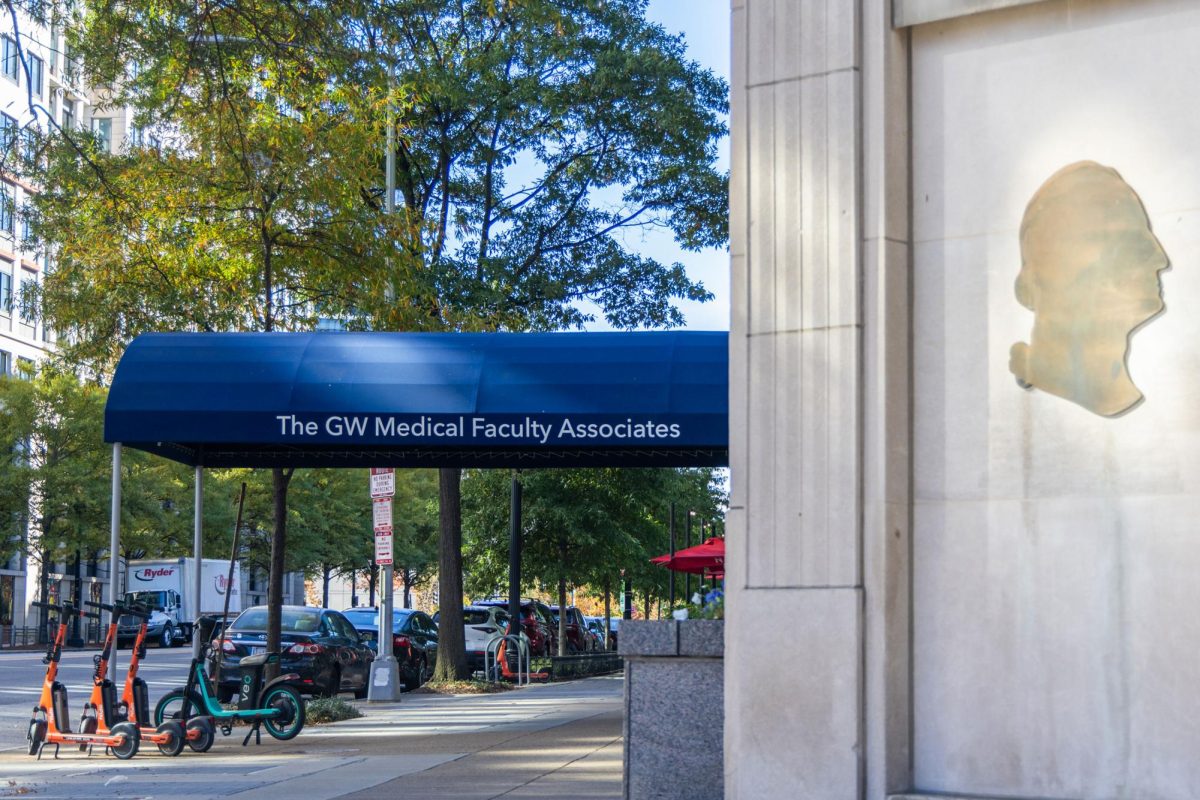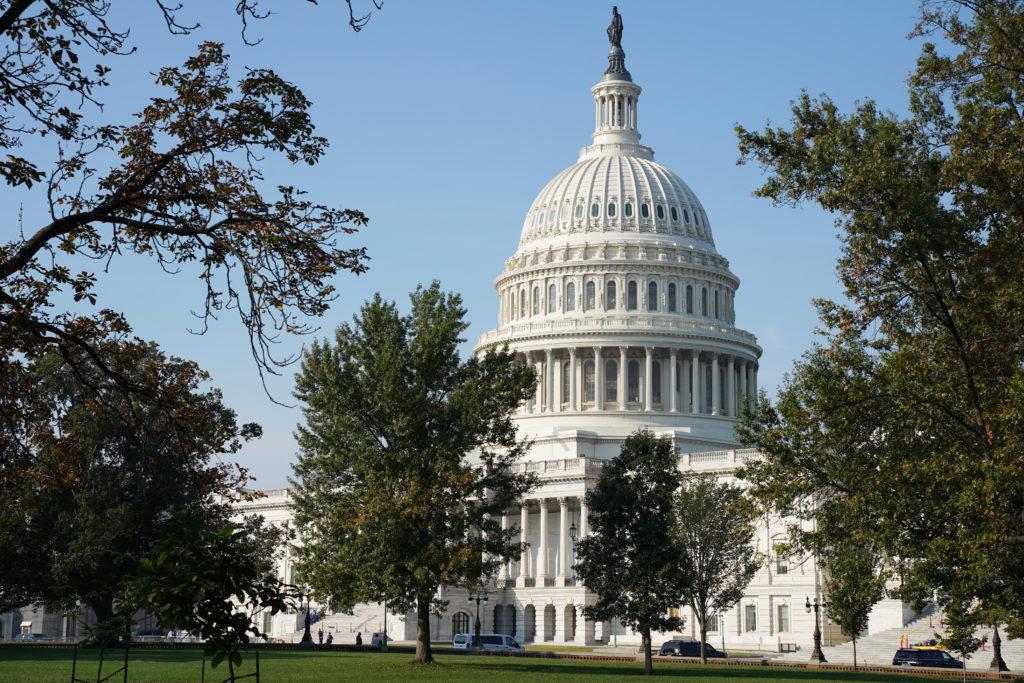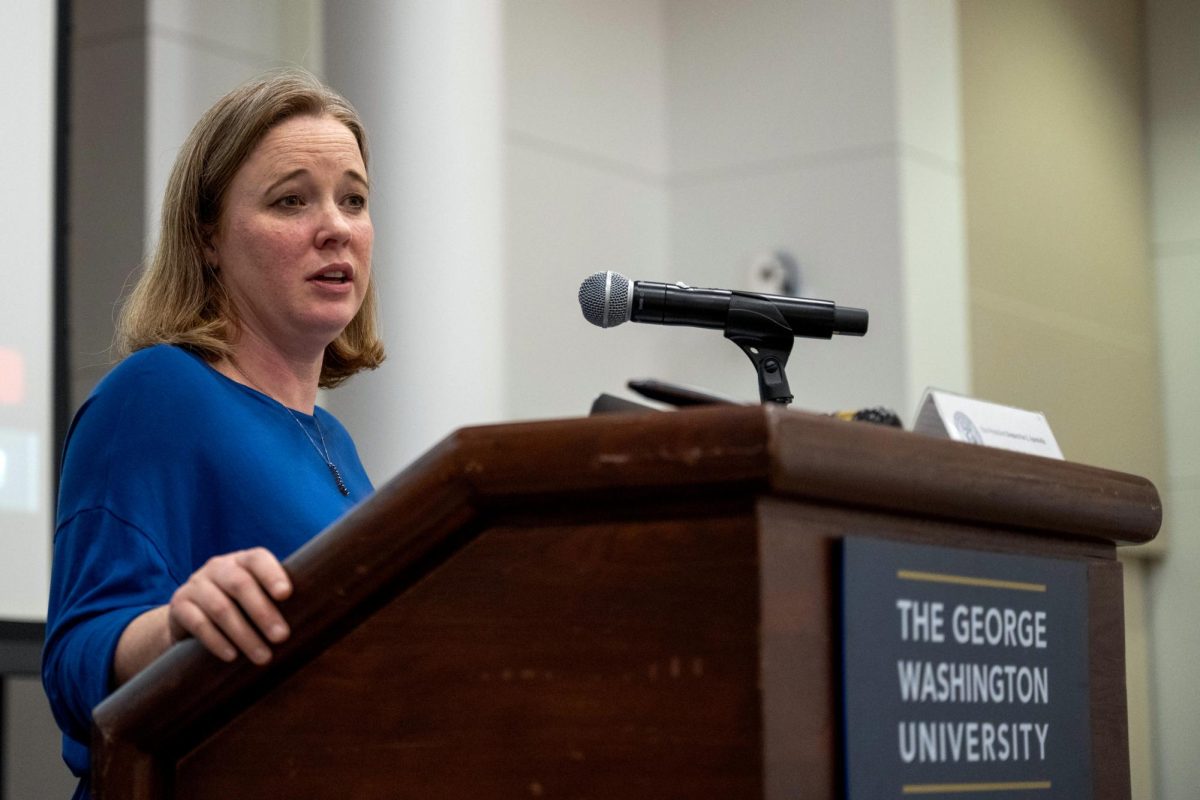The Faculty Senate approved a slew of changes to the Code of Academic Integrity on Friday, updating the code’s language to address intentionality in academic dishonesty and clarify disciplinary definitions.
Christy Anthony, the director of the Office of Student Rights and Responsibilities, presented the proposed changes to the senate after the Student Association Senate approved the changes at a meeting last month. Faculty senators also approved resolutions calling on officials to expand the length of internal research awards and defending academic freedom to teach about race and LGBTQ+ issues after some states moved to restrict curricula related to topics like critical race theory.
Anthony said the updates about how disciplinary hearings are managed and launched affect what constitutes an academic integrity case at GW and how those cases are resolved, with the exception of cases involving students in the Doctorate of Medicine program and GW Law, which have their own codes of academic integrity. She said her office addresses between 150 to 200 accusations of academic integrity violations per year.
Officials updated the code last year to make the language more “restorative,” allowing administrators to respond to lower-level integrity cases in a more “educational” way while also increasing consequences for repeat violations.
She said the changes this year establish a definition for “academic exercise” – a term that is currently used in the code but not clearly defined – to include formal tests, dissertations, discussion on blog postings and more informal assignments like ungraded drafts, which can be considered grounds for an academic integrity violation.
“I’d like to thank the provost for his help and support in creating this definition, which allows for very broad flexibility for individual faculty members to determine what constitutes an academic exercise,” Anthony said.
She said the incorporation of intentionality in considering a student’s conduct has been inconsistent throughout the code, and faculty senators delivered feedback for SRR to make the appropriate updates to standardize the code.
Anthony said officials are now “deliberately” including intentionality throughout the code where appropriate to ensure it is considered a factor in determining proper sanctions against a student accused of cheating.
She said the new changes will require her office to publish expectations for which documents should be accessed and submitted for a disciplinary hearing for an alleged violation before an academic integrity panel convenes. She said the code has previously required the students and instructors to have “reasonable access” to case files in advance, leading to a broad interpretation of what constitutes case file access.
Anthony said SRR is separately proposing that instructors will have five business days to submit evidence and witness lists after receiving notice from the disciplinary panel, and students must respond with their own documents and witnesses at least three days before the panel meets. The proposal is not officially part of the code changes.
“As I think we have all learned over the last two years, logistics of submission and review can be adaptable,” she said.
The senate also unanimously approved a resolution to request the Office of the Vice Provost for Research to allow applicants for University research awards to budget for multi-year research and academic projects. The resolution also requests that GW’s schools be permitted to award multi-year internally supported research grants without harming their yearly spending allocation.
Faculty senators called on officials to expand the amount of funding going toward research projects in the fiscal year 2022 budget last April.
Kausik Sarkar, a faculty senator and the co-chair of the senate’s research committee, said GW grants most donor funding for a one-year period, which is not always enough time for researchers to complete their work. He said some projects require multiple steps that take longer than a year, like a composer writing music and finding musicians to perform, but researchers need to spend the entire grant within a year’s allocation because of the terms of the grant.
“Those of us who get outside federal funding from the National Science Foundation or [National Institute of Health], many times we are allowed a no-cost extension for the first year, and then you have to provide an answer later,” Sarkar said. “So these are not something unusual. And on the other hand, it would be extremely helpful for our colleagues who are very much dependent for their academic activities for such funding.”
Senators also unanimously approved a resolution calling on officials to support faculty teaching about race, sexuality and gender in response to a series of laws passed by state legislatures restricting or discouraging lessons on the topics to young students.
Jamie Cohen-Cole, a faculty senator and a member of the senate’s professional ethics and academic freedom committee, said many students and faculty may feel “targeted” by state-level restrictions on curricula, like a recent Florida law that prevents public school teachers from holding lessons on sexual orientation in the classroom.
GW’s Faculty Senate joins a national movement to pass a resolution defending academic freedom surrounding race, sexuality and gender topics.
“This is focused on the teaching of or preventing the teaching of honest appraisal of history of racial oppression and the LGBTQIA issues,” Cohen-Cole said.
Senators approved a set of principles on shared governance after a task force establish a clear definition of shared governance. The principles will now go before the Board of Trustees for final approval in May.
Provost Chris Bracey also gave the annual update on University’s core indicators of academic success. The indicators include statistics on GW’s four- and six-year graduation rates and faculty salary equity and diversity levels.
The senate unanimously approved resolutions of appreciation for Arthur Wilson, the outgoing chair of the senate’s executive committee, and Miriam Galston, the outgoing vice chair, for their service leading the senate’s top committee. Wilson and Galston will finish their two-year terms heading the committee later this month.
Senators confirmed Jim Tielsch, a faculty senator for the Milken Institute School of Public Health, as the chair of the executive committee and approved eight other members, one from each school, to the executive body for the upcoming academic year.


